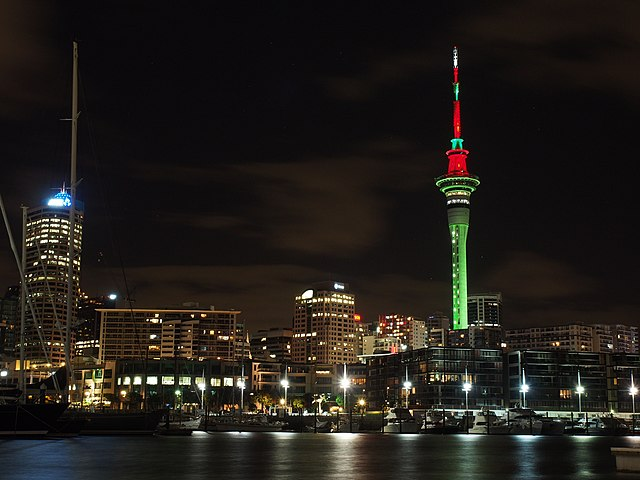
I have always loved going down a good Wikipedia wormhole. However, up until late last year, I had never put much thought into the behind-the-scenes aspect of Wikipedia. Truthfully, I’m not much of a computer whiz, so I had never realised just how easy, impactful, and rewarding Wikipedia editing could be.
I was lucky enough to be hired as a summer student with Tāmaki Paenga Hira/Auckland Museum in November 2023. My role has been to update and edit articles related to the history of Tāmaki Makaurau/Auckland, with the eventual goal of creating an accessible source of local history for Aotearoa New Zealand’s new school curriculum. Our progress can be tracked here on English Wikipedia. In particular, I have chosen to focus on queer history, which is a specific interest of mine. Creating Wikipedia articles on prominent queer topics and seeing people engage and add depth to these pages has been incredibly rewarding. However, it also highlighted the knowledge gaps in our current Wikipedia space.
Early on, it became pretty clear to me that Wikipedia’s emphasis on western academia serves some topics far better than others. To meet Wikipedia’s notability and reliability requirements, information must be recorded through traditionally academic avenues such as peer-reviewed journals. While this prevents unnecessary or misinformed articles from being made, it overlooks anecdotal and oral histories that hold validity in their own right. As a result, significant portions of local history are missing from Wikipedia. This became evident when I started to research early queer establishments in Tāmaki Makaurau with the goal of creating articles for them. I found that these queer establishments did not get much academic coverage. Most of the information I found was within blogs and social media posts. This information still held value, as it came from research and first-hand accounts, but it could not be used due to Wikipedia’s reliability requirements. While Wikipedia does need to maintain the reliability of its content in some way, the current model reinforces an information bias against underrepresented histories.
There is good news though. One of the five pillars of Wikipedia states Wikipedia has guidelines rather than firm rules. These guidelines are important, but under this pillar they are flexible and able to be improved, much like Wikipedia articles themselves. This is something that could be considered in the long-term to make Wikipedia’s knowledge base as diverse as the communities it represents.
In the meantime, we can address knowledge gaps by engaging a diverse range of editors. Much like myself several months ago, most younger people do not realise how empowering and simple adding information to Wikipedia can be. By providing opportunities for people to learn in a supportive environment, we can encourage more people to share knowledge in a broader range of topics. As a part of my studentship, I co-hosted an edit-a-thon called “Trailblazers of Tāmaki Makaurau“. The event was aimed at younger people with little to no editing experience. Overall, the responses were overwhelmingly positive. Many participants wanted to continue improving their pages after the event. By giving people this brief exposure, we can encouraged a diverse group to participate in editing. Efforts like this can allow for a wider range of underrepresented topics to be addressed on Wikipedia.
Overall, bridging the current knowledge gaps on Wikipedia is no easy feat. However, it is encouraging to see that efforts are being made to address them. Wikipedia is a powerful educational tool, and as editors, it is up to us to ensure that it is capable of adequately informing and representing the world we live in.

Can you help us translate this article?
In order for this article to reach as many people as possible we would like your help. Can you translate this article to get the message out?
Start translation